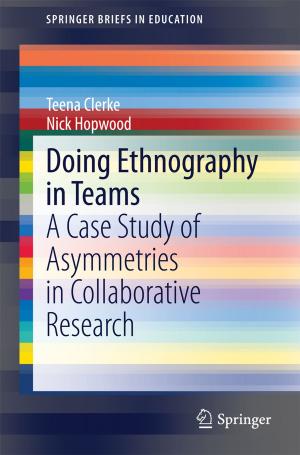Ethics and Human Rights in Anglophone African Women’s Literature
Feminist Empathy
Fiction & Literature, Literary Theory & Criticism, African, Nonfiction, Social & Cultural Studies, Social Science, Gender Studies, Feminism & Feminist Theory| Author: | Chielozona Eze | ISBN: | 9783319409221 |
| Publisher: | Springer International Publishing | Publication: | December 14, 2016 |
| Imprint: | Palgrave Macmillan | Language: | English |
| Author: | Chielozona Eze |
| ISBN: | 9783319409221 |
| Publisher: | Springer International Publishing |
| Publication: | December 14, 2016 |
| Imprint: | Palgrave Macmillan |
| Language: | English |
This book proposes feminist empathy as a model of interpretation in the works of contemporary Anglophone African women writers. The African woman’s body is often portrayed as having been disabled by the patriarchal and sexist structures of society. Returning to their bodies as a point of reference, rather than the postcolonial ideology of empire, contemporary
African women writers demand fairness and equality. By showing how this literature deploys imaginative shifts in perspective with women experiencing unfairness, injustice, or oppression because of their gender, Chielozona Eze argues that by considering feminist empathy, discussions open up about how this literature directly addresses the systems that put them in disadvantaged positions. This book, therefore, engages a new ethical and human rights awareness in African literary and cultural discourses, highlighting the openness to reality that is compatible with African multi-ethnic, multi-racial, and increasingly cosmopolitan communities.
This book proposes feminist empathy as a model of interpretation in the works of contemporary Anglophone African women writers. The African woman’s body is often portrayed as having been disabled by the patriarchal and sexist structures of society. Returning to their bodies as a point of reference, rather than the postcolonial ideology of empire, contemporary
African women writers demand fairness and equality. By showing how this literature deploys imaginative shifts in perspective with women experiencing unfairness, injustice, or oppression because of their gender, Chielozona Eze argues that by considering feminist empathy, discussions open up about how this literature directly addresses the systems that put them in disadvantaged positions. This book, therefore, engages a new ethical and human rights awareness in African literary and cultural discourses, highlighting the openness to reality that is compatible with African multi-ethnic, multi-racial, and increasingly cosmopolitan communities.















